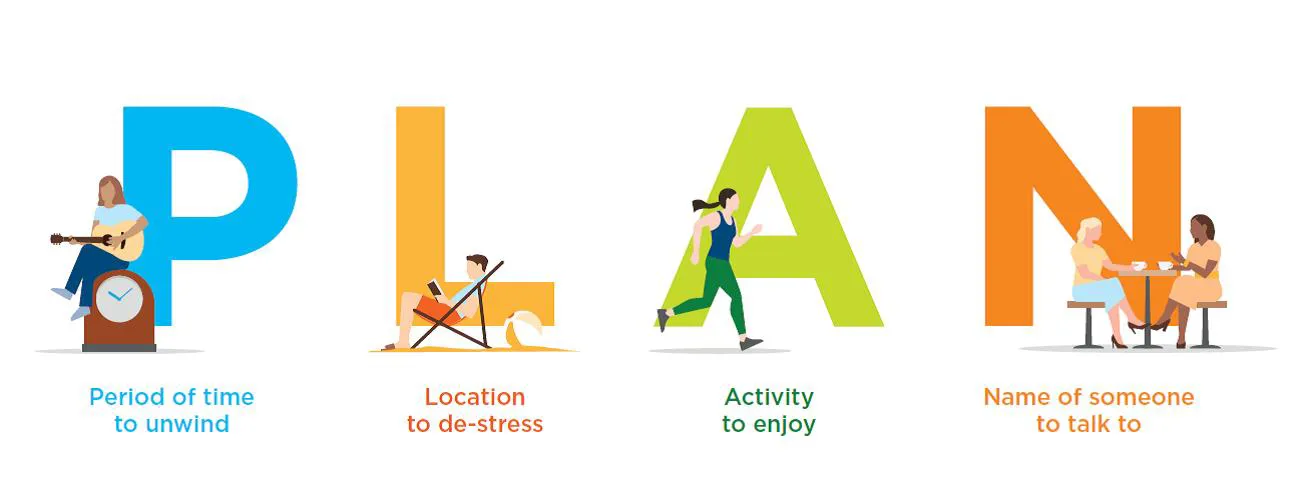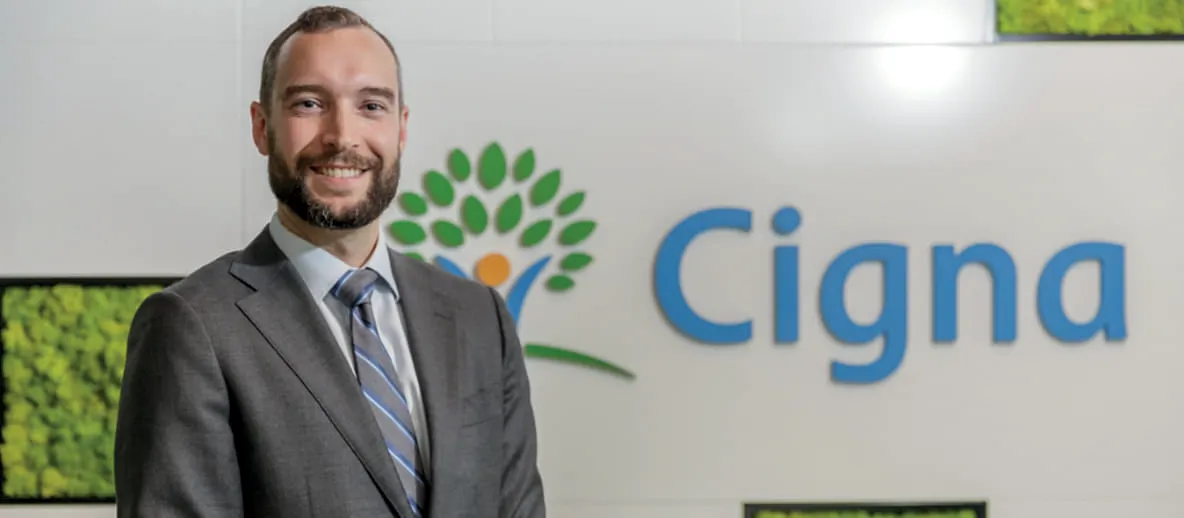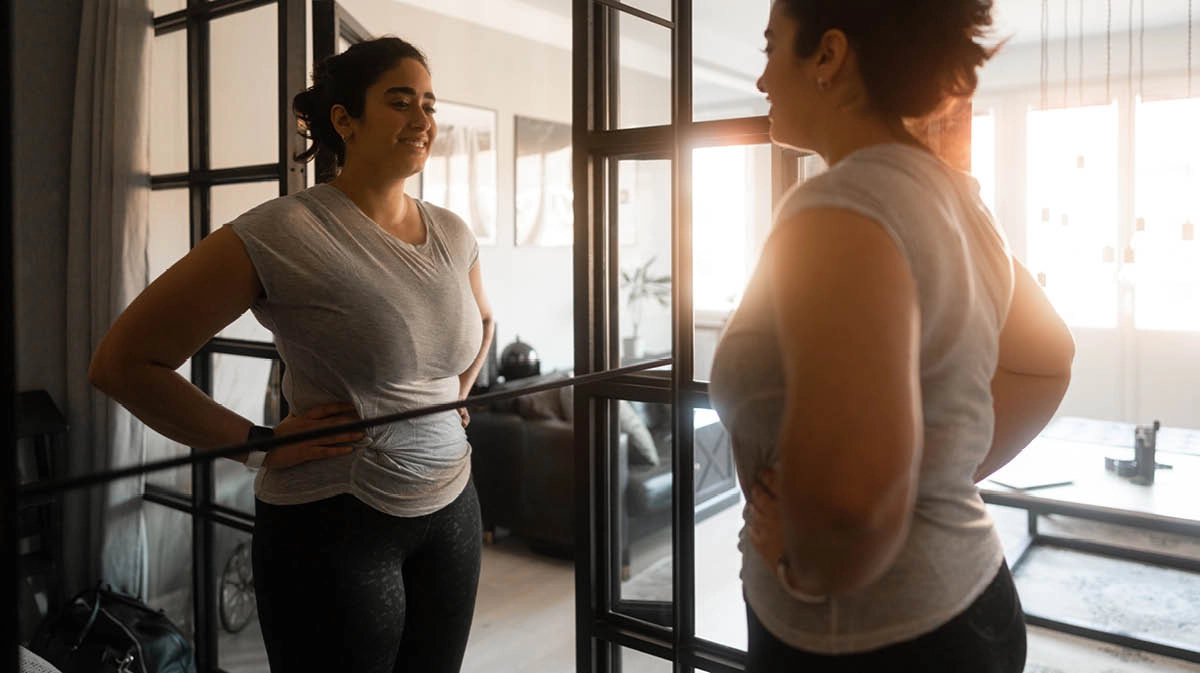At Cigna Global, we want to help you to manage stress and have a better work-life balance.
In this interview, we speak to Michael Niffenegger, Chief Financial Officer at Cigna Global IPMI, to find out how he deals with stress in the workplace.
What kind of things do you do to deal with stress in your life?
So for me, being an expat in Glasgow, we’re surrounded by many beautiful landscapes here. My family and I like to try and go hiking on the weekends. There’s also plenty of opportunities to take advantage of the many golf courses that are nearby.
I’ve really been trying to work on my golf game. Sometimes this can be stressful rather than relaxing, but it’s nice to be able to get away from work and hit a few golf balls.
I’ve got young daughters at home so it’s always fun to get out for walks with them, kick the ball around, and take them out on their scooters.
Playing with them on weeknights after work and on weekends is great. They’re still at the age where they take regular naps, so sometimes it helps for me to take an afternoon nap myself on the weekends to re-charge my batteries and make sure I’m well-rested for the next week ahead.
With having a young family at home, just how important is it for you to maintain a good work-life balance?
It is tough being in this type of business segment because we’re in the ‘always on’ culture. I like to explain it using a dumbbell metaphor. When I wake up in the morning, our Asian-Pac colleagues are online, and then when I go to bed, our American colleagues are online. So it seems like emails are always coming through.
I think first and foremost, it’s about finding time to step away and unplug. Whether that’s having dinner with my family, or putting my phone away and going for a run, these are very helpful for me.
I’ve also found it helpful to take check-in calls whilst I’m out walking my dog. This way, I don’t have to be in front of my computer and it helps make it a more personal call, especially if it isn’t a technical one where I need to refer back to my screen.
I like how Jeff Bezos puts it, it’s not so much work-life balance -- it’s more work-life harmony. Work-life balance almost gives you an option or a trade-off whereas work-life harmony involves blending everything together for what works for me to optimize the holistic relationship between the two.
You have a finite amount of time in a given day and it is important to ensure that you harmonize getting things done and being productive, along with allowing that to keep you energised in order to prioritise the life component as well.
With Cigna being a health and well-being partner, just how important do you think it is for us to be able to provide resources for people to deal with their stress?
I think especially in a business segment like ours where we have globally mobile individuals, they may be travelling away from their families and loved ones to move into a new place.
So for them in particular, I think it’s really important to connect those individuals with the capabilities and services that we offer. Our whole health approach focuses on both physical and mental health to make sure that they’re covered in times of need.
Finally, in terms of managing a team, are there any hints you can offer to create a stress-free atmosphere?
I think this comes back to the earlier question around work-life balance, it’s really about laying out clear expectations to understand what people’s personal priorities are along with their workplace priorities.
This is then where time management skills come into play to ensure that we can accomplish the work that we set out to get done. In our Glasgow office, we allow people to work flexibly and work from home. I think this can be a big help for those who choose to work in that way.
Some people like to work in a more traditional workspace environment, which is fine as well. But I think the flexibility that we offer to our employees can help the team collaborate well to ensure that we are all moving forward and accomplishing our goals together.
I think what is also very important for our business segment since we are a global workforce, is to be able to spend time with our colleagues from around the world in person. When we are able to travel to the local markets to spend time with our peers and stakeholders, we can really build good working relationships. I think this is key to our success.
To be able to sit in the same room as someone in the workplace and see the whites in their eyes, and then maybe go grab a bite to eat or a drink after work, I think that really helps further the working relationship. This makes it a lot easier to work together in the future.
See Stress Differently

At Cigna, our work is rooted in our mission to improve the health, well-being and peace of mind of those we serve. Using cutting-edge technology and through our work partnering with doctors, technologists and artists, we have come up with a powerful new way to make the invisible visible. Introducing our stress care initiative - ‘See Stress Differently’.
Our doctors have devised a short stress test, based on an established industry standard: the Perceived Stress Scale. The test only takes three-minutes to complete and you can take it here.
Be sure to share your test results with us on social media by using the tag #SeeStressDifferently.
For more information about See Stress Differently, please click here.
Continue reading
We've got more tips for dealing with stress at work in this blog article, featuring an interview with Andy Seale, Chief of Global Sales at Cigna Global IPMI.


